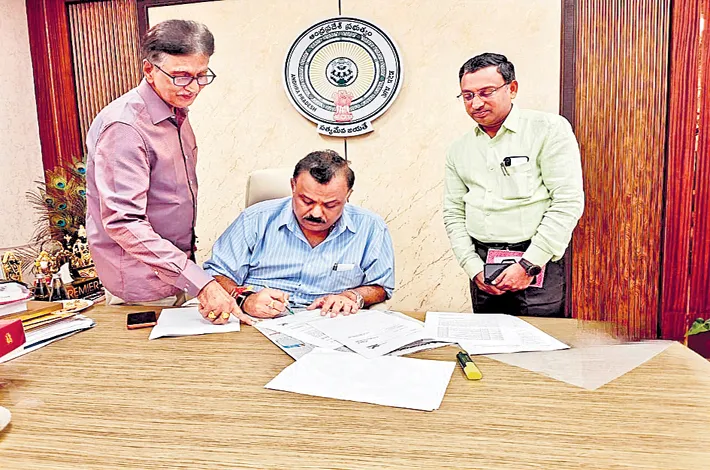Do away with Conocarpus plants in TG: Speaker
26-03-2025 12:00:00 AM

metro india news I hyderabad
A crucial discussion unfolded in the Telangana Assembly on Tuesday, where Speaker Gaddam Prasad Kumar voiced concerns regarding the large-scale plantation of Conocarpus plants across the state.
Acknowledging the plantation of 273 crore saplings under the Telangana ku Haritha Haram initiative led by the previous BRS government, the Speaker pointed out that a significant portion of these included ineffective plant species like Conocarpus.
Highlighting its drawbacks, he stated that while Conocarpus is a drought-resistant plant capable of thriving in various conditions, it poses serious environmental risks. The plant absorbs oxygen and releases carbon dioxide, making it unsuitable for sustaining biodiversity.
Additionally, it fails to provide habitat for birds. Speaker Kumar urged the State government to take corrective measures by removing these plants from villages and roadsides across Telangana.During the discussion, BRS MLA Vemula Prashanth Reddy emphasized the importance of continuing efforts to enhance forest and tree cover in Telangana.
He highlighted that under the leadership of former Chief Minister K. Chandrashekar Rao, the Haritha Haram initiative played a crucial role in improving the state’s green cover. Over the past decade, the program successfully planted approximately 273 crore saplings with an investment of ₹10,822 crore. Additionally, nurseries and village forests were established across all villages, contributing to a 7 percent increase in Telangana’s green cover.
While defending the program’s achievements, Reddy acknowledged the need for a scientific approach to afforestation and ensuring the selection of plant species that are beneficial for the environment and biodiversity. It is invasive, disrupts biodiversity The Conocarpus tree, often mistaken for the "Congo Carpus" tree, is a fast-growing species widely used for urban landscaping due to its adaptability and resilience in various climatic conditions.
However, it poses several environmental risks. Conocarpus is considered an invasive species, as it can outcompete native vegetation, disrupting local biodiversity and altering ecosystems. Additionally, it has high water requirements, which can strain local water resources, particularly in drought-prone areas. Another major concern is its impact on air quality—it absorbs oxygen and emits carbon dioxide, making it unsuitable for supporting a healthy ecosystem. Furthermore, its roots contribute to soil erosion, leading to reduced soil fertility and potential agricultural challenges.
Due to these adverse effects, several Indian states, including Kerala, Tamil Nadu, Karnataka, Andhra Pradesh and Gujarat, have imposed restrictions or outright bans on its cultivation to safeguard local ecosystems and promote sustainable afforestation.








